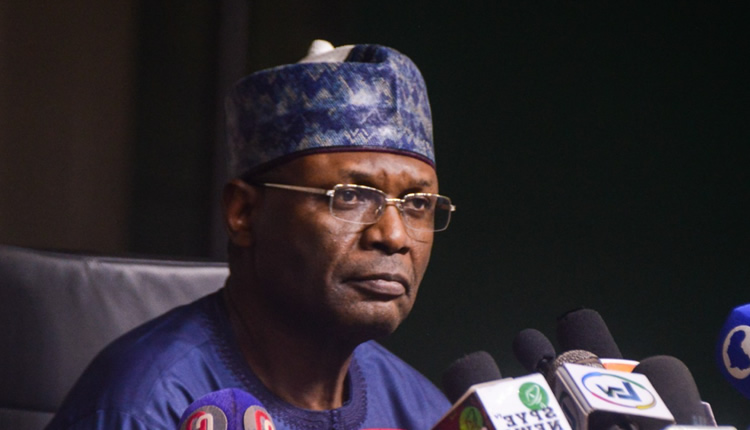As the election petition tribunal hearing the petition of former Governor Gboyega Oyetola and Osun APC challenging the declaration of Governor Ademola Adeleke by INEC as the authentic winner of the July 16th, 2022 gubernatorial election in osun state is set to resume hearing on Friday 13th January, 2023 for interested parties in the matter to adopt their final written addresses, it is important to refresh our memory on how far the petitioners have been able to prove their petition on the two angles as presented before the tribunal; claim of overvoting in about 749 polling units across 10 LGs in the state during the election that produced Governor Ademola Adeleke as the eventual winner and the eligibility of Governor Ademola Adeleke to contest the election on the ground that he presented a ‘forged’ academic certificate(s).
OVER-VOTING CLAIM.
To defend the credibility of the election it conducted which produced Senator Ademola Adeleke as the winner, INEC presented the Deputy Director (ICT), Mrs Abimbola Oladunjoye as a witness to the tribunal and she was duly cross-examined by both the petitioner and the defense counsel. The media was however awash with stories with headline that reads “INEC admits to over-voting in Osun election”.
To have a proper understanding of that conclusion, I quickly reached for my dictionary to confirm again, what to admit mean in real sense. According to the dictionary, admit means “To concede as true, to acknowledge or assent to, as an allegation which is impossible to deny.” In essence, to admit is to agree to a fact, which is irrefutable.
Now, what exactly transpired at the Tribunal?
Coming under cross-examination by the petitioner’s counsel, Chief Akin Olujinmi (SAN), Mrs. Oladunjoye said “Based on BVR12179 and my witness statement, there is seemingly over-voting of 75.” By ‘seemingly’, which literally means ‘as it appears’, it is clear to the discerning that her comment was based on two different documents.
So, what is BVR12179 that Mrs. Oladunjoye compared its data to those in her witness statement that informed the ‘seeming’ over-voting observation? The BVR12179 is the BVAS report held by the APC and Oyetola, but has been disputed by INEC because it contained ‘incomplete’ data.
Simply put, the basis of the petitioner’s counsel comparison was an incomplete accreditation data, hence, the noticeable difference observed by Mrs. Oladunjoye at the Tribunal. With that pointedly clear, it is totally misleading, and worse, manipulative, to make over-voting claim based on an incomplete accreditation data.
By law and logic, over-voting can only arise when the complete accreditation data is compared with the results collated on the form EC8A. This much was pointed out by Mrs. Oladunjoye during cross-examination that “Why I used the word seemingly over-voting is because any comparison that should take place should be between the EC8A and the physical BVAS machine.”
The clear inference from the above is that over-voting can only be established when accreditation on the BVAS machines and the form EC8A had been compared together. But this simple truth was cleverly avoided and instead, a different meaning was imported into the testimony of Mrs. Oladunjoye.
Aside this, it will interest you to note that the PDP and the INEC had furnished the Tribunal with the complete accreditation data for the election. Even more, the respondents submitted a forensic analysis report, and went even further to produce every BVAS machines used for the election in the 749 polling units that is being contested to the Tribunal.
Since over-voting occurs only when the number of votes in a polling unit exceed accreditation data, the right thing is to look at the complete data, not the incomplete one that the APC is pushing around. At the Tribunal, the INEC maintained that the BVAS report with the petitioner is inaccurate by explaining that “The report was issued on 27th of July when synchronisation was ongoing. According to guidelines, the total accreditation figure is taken from the physical BVAS machine and written on the EC8A.”
Now, you may like to ask why INEC supplied the petitioner, a document with ‘incomplete’ data? Mrs. Oladunjoye maintained that the commission is under obligation to supply such information within a given timeframe in compliance with the freedom of information (FOI) act, it is also interesting that section 74 of the electoral act Mandate INEC to supply same within a given timeframe, and as confirmed by her, the documents were signed off as data available as at the date of its release.
To prove over-voting, you have to compare data in the voters register, form EC8As (result sheet) and the BVAS machine itself which the petitioner have failed to do. From the events so far in the Tribunal, the APC and Oyetola have shown more interest in pushing false narratives than actually proving its claim of over-voting and that is unfortunate.
ACADEMIC CERTIFICATE ‘FORGERY’ CLAIM.
The certificate “forgery” claim did not start now but was intensively debated in courtrooms in the 2018 elections. And on all occasions, the question was resolved in favour of Sen. Ademola Adeleke, with all the courts rejecting the claim that he forged the documents he filed with the INEC and as such, eminently qualified for the position of Osun state Governor.
Particularly striking is the Appeal Court decision in ADELEKE VS RAHEEM, NO. CA/A/2004/2019, which cleared Adeleke of the allegation of forgery. Justice Emmanuel Agim who read the unanimous judgement of the three-man panel of the Appealate Court held that Adeleke did not supply false information in his form C.F.001 and other particulars he filed with the INEC for the 2018 governorship election in Osun state.
Justice Agim frowned at the judgement of the Bwari High Court that contested the eligibility of Adeleke as “a substantial miscarriage of justice because if the trial Court had not ignored that evidence, it would not have come to the conclusion that the information in the statement of result and school testimonial presented by the 3rd respondent (Adeleke) to the 4th respondent (INEC) that the appellant sat for the West African School Certificate Examinations in May/June 1981, at Muslim High School is true and not false.”
The clear inference from this judgement is that Adeleke did not forge any of the documents he supplied to the INEC in the 2018 governorship election. Every documents he filed with the electoral umpire were not his making, and this much was established in the courtrooms when the authorities that issued them appeared to assert their validities.
Not done, the appellate court held that “WAEC confirming affidavit and Ledger clearly resolved the issue of whether the statement of result and testimonial from Ede High School Ede submitted by the 3rd respondent to the 4th respondent along with his Form C.F.001 contain false information that he completed secondary school at Ede Muslim High School Ede and sat for the WASCE there in May/June, 1981.”
The simple fact from the above decision of the appellate court was that Adeleke filings with the INEC in 2018 was in order and not forged as being alleged. To show otherwise, the court ruled, goes beyond “pointing out errors or mistakes or discrepancies in the document.”
Haven failed to establish certificate forgery by getting the maker of the document to admit same and also failed to prove beyond “reasonable doubts” the over-voting claim in 749 polling units as presented by the petitioner, it is not far fetched to conclude that the proceedings at the tribunal so far has been at best an academic exercise.
Let those who think they can manipulate their way to power know that they have failed in their bid to manufacture irregularities where there is none, Osun people have decided and Adeleke is their choice, a choice that is academically qualified to contest the election even beyond the basic requirements as demanded by INEC, and a choice that was overwhelmingly voted for by the majority of the osun populace.




